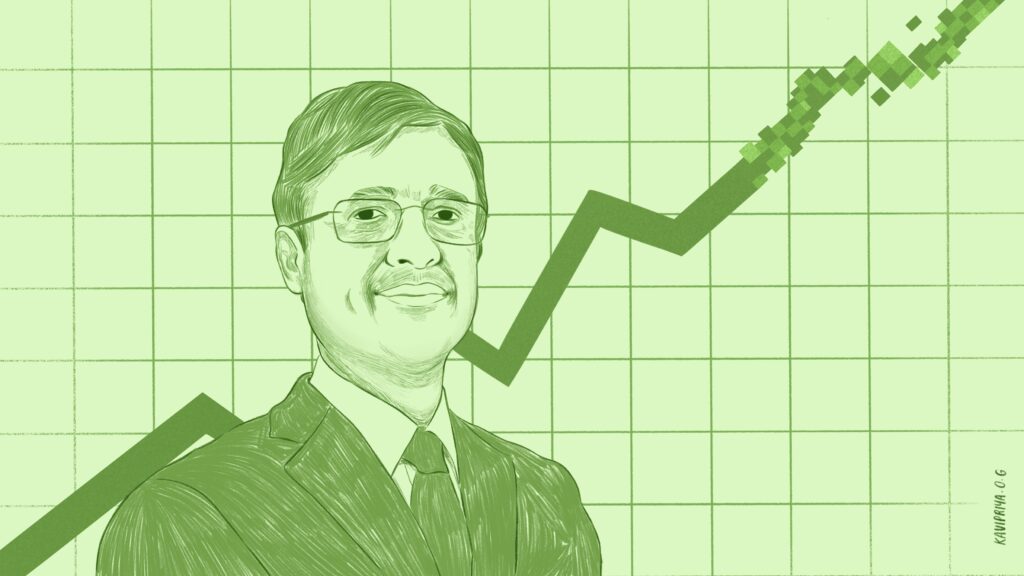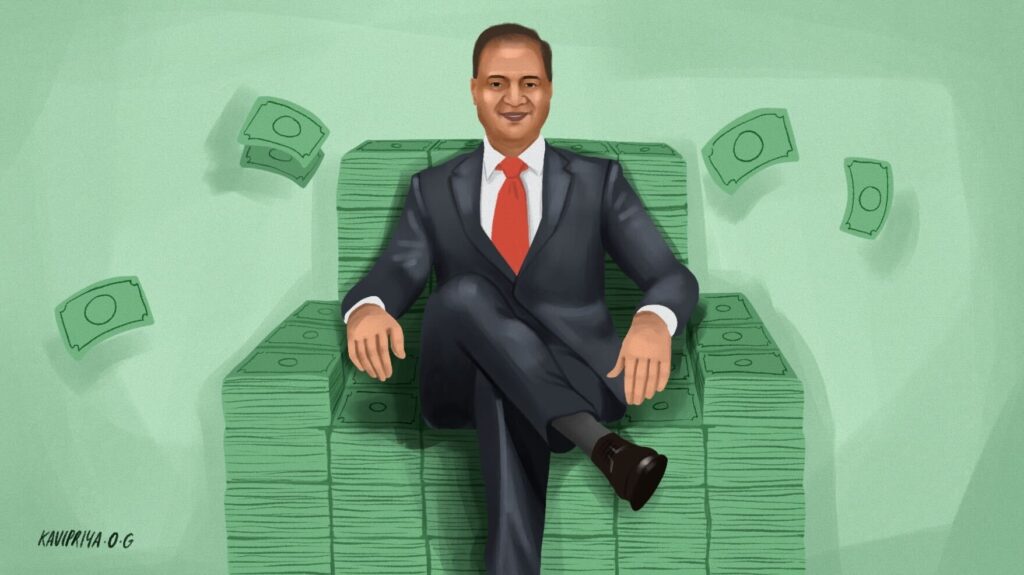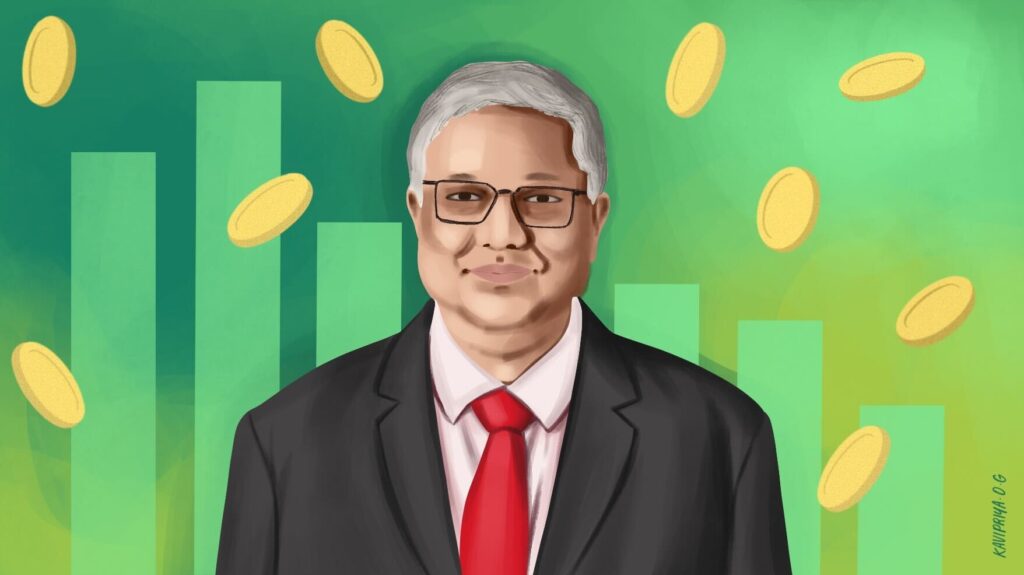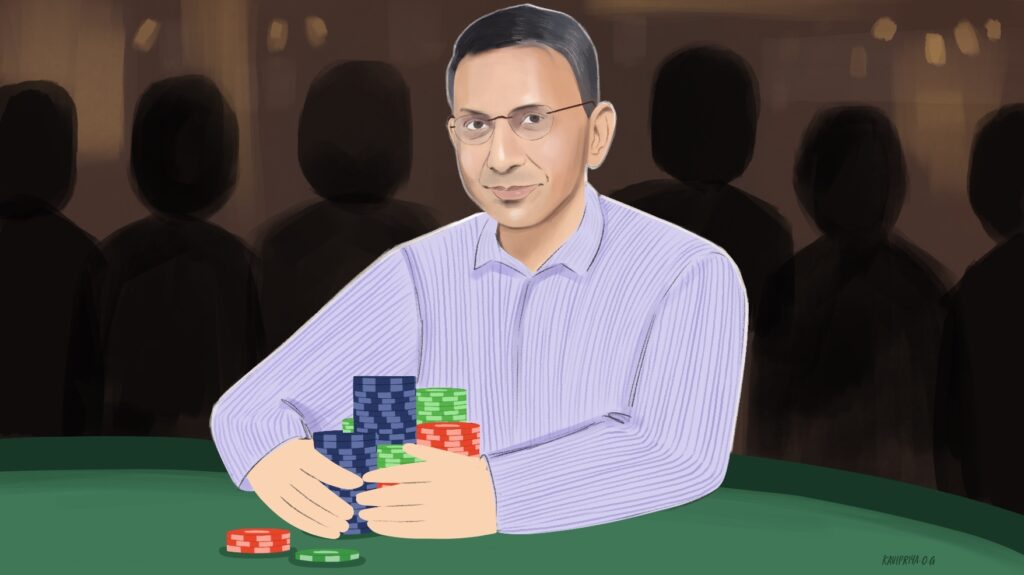Good Morning [%first_name |Dear Reader%],
You are on a free plan.
Your subscription has expired.
Upgrade now to unlock premium newsletters, top feature stories, exclusive podcasts, and more.
You are reading our weekly newsletter The Collection —multiple stories, multiple perspectives, one theme worth your time every edition
After reading my colleague Anand Kalyanaraman’s wonderful interview with Sanjeev Prasad, MD of Kotak Institutional Equities, earlier this month, I found myself revisiting my investment portfolio, rethinking some of the schemes I’ve put my money in, and—most importantly, perhaps—readjusting my expectations.
If you’re going to begin investing now, please keep your expectations low, regardless of where you put your money.
One option is balanced funds, assuming the fund manager is adept enough to take the call to deploy more money into debt at the right time and see if there are opportunities in the equity market. Otherwise, keep more orientation towards debt at this point in time, and see how things pan out.
If the market corrects in terms of price or in terms of time, maybe the risk-reward balance becomes better, and that’s when some of the debt can be sold to move into equity. So maybe that’s a better approach now.
Prasad’s reasoning for a more balanced approach in current market conditions stems from a simple fact—known by many, and yet, somehow conveniently ignored: India’s stock markets are overvalued and valuations remain high.
The double-digit annual growth that many of us have been conditioned to expect from equity are no longer guaranteed, or even likely.
Say, an investor starts with a company at 50X PE—that is, a company with earnings of Rs 1 and a market cap of Rs 50. Let’s say the company is growing at 7% CAGR, which means its earnings double in 10 years. But if the PE comes down to 25X—which may be a more realistic multiple for the company given its business model—the investor would not have made any money in the stock in 10 years. That’s the problem here.
If you haven’t read the story yet, I highly recommend you do so—Prasad breaks down why equities and real-estate may not yield the kind of returns you think, why domestic investors are buying when foreign counterparts are selling, and what the rise in stock market indices says about the country’s economy.

Kotak’s Sanjeev Prasad debunks mutual-fund hype: 40% of retail flows since 2021 yielded zero returns
The 30-year veteran at Kotak Institutional Equities speaks of the disconnect between the market fundamentals and the high valuations that stocks command now

Kotak’s Sanjeev Prasad debunks mutual-fund hype: 40% of retail flows since 2021 yielded zero returns
The 30-year veteran at Kotak Institutional Equities speaks of the disconnect between the market fundamentals and the high valuations that stocks command now
But it isn’t just Prasad who has taken a contrarian stand when it comes to investment and money management. In just this past year, as markets see-sawed, The Ken has written about others who have defied conventional thinking and charted their own strategies for wealth creation.
This week’s edition of The Collection is all about them.
In August 2024, for instance, when the equities market was still trending upwards, many still thought that having a bigger proportion of equity stock in portfolios would be advantageous to mutual funds. But not Parag Parikh. The fundhouse instead increased its cash and equivalents to almost one-fifth of its total assets under management (AUM) in its flagship scheme.
Why? Well, its chief executive explains in this piece:

The $10B Parag Parikh Mutual Fund is making a virtue of not investing in a raging bull market
The star fund house is growing at breakneck speed and so is the cash in its portfolio

The $10B Parag Parikh Mutual Fund is making a virtue of not investing in a raging bull market
The star fund house is growing at breakneck speed and so is the cash in its portfolio
Another player which benefitted from a similar decision was Aequitas. As of December 2024, the portfolio management service provider had over 85%(!) of its AUM in cash and equivalents, relinquishing much of its mid- and small-cap holdings.
Its mantra?
“Do as the promoters do.”

Siddhartha Bhaiya’s Aequitas is the fund for the ultra-rich that can win by not playing
He has spent over a decade making the ultra-HNIs richer in a capricious market—though if it picks up again, he might just have to pay for that luck

Siddhartha Bhaiya’s Aequitas is the fund for the ultra-rich that can win by not playing
He has spent over a decade making the ultra-HNIs richer in a capricious market—though if it picks up again, he might just have to pay for that luck
Among industry veterans who publicly raised the growing risk in holding small- and mid-cap stocks was ICICI Prudential MF’s investment chief Sankaran Naren.
His fund house ringfenced its portfolio against this and brought its exposure to mid- and small-caps to the second-lowest among the country’s top 20 mutual fund houses.
It even stopped accepting lump-sum investments into such stocks in March 2024.
But it didn’t close its gates all the way.

ICICI Prudential MF’s investment chief warned of a crash. Did the fund house listen?
S Naren alerted everyone to get out of mid- and small-cap stocks—“lock, stock, and barrel”. The fund house had ringfenced its portfolios by then but left a breach in some walls

ICICI Prudential MF’s investment chief warned of a crash. Did the fund house listen?
S Naren alerted everyone to get out of mid- and small-cap stocks—“lock, stock, and barrel”. The fund house had ringfenced its portfolios by then but left a breach in some walls
Not everyone dealt with the growing risk in small- and mid-caps the same way. In fact, one tiny PMS firm went the other way—it continued to focus on small caps (making them 95% of its portfolio) even after valuations began showing cracks earlier this year.

This tiny PMS firm makes millions where large rivals fear to tread
With 95% exposure to “small-cap blue chips”, Nagpur’s Counter Cyclical is delivering returns the big-city boys can’t match

This tiny PMS firm makes millions where large rivals fear to tread
With 95% exposure to “small-cap blue chips”, Nagpur’s Counter Cyclical is delivering returns the big-city boys can’t match
And finally, to wrap this week’s edition up, we have Nalanda Capital and its rather unexpected breaking of some of its own rules.
Nalanda’s “permanent-owner” investment philosophy draws inspiration from intellectual giants like Charles Darwin and Warren Buffet.
The “permanent owner” philosophy is something in line with Buffett’s famous quote: “Our favourite holding period is forever.”
[…]
“When we find high-quality businesses that do not fundamentally alter their character over the long-term, we should exploit the inevitable short-term fluctuations in their business for buying and not selling.”
[…]
“We sell under the following three conditions: 1) a decline in governance standards; 2) egregiously wrong capital allocation; and 3) irreparable damage to the business.”
But last year, well before indices started falling in September, Nalanda was starting to sell partial stakes in companies in its portfolio.
Anand examined why, and what it portended for India’s equity universe, in this piece:

India’s ‘other Warren Buffett’ won’t stop selling while everyone’s still buying
Pulak Prasad-run Nalanda Capital considers itself a “permanent owner” of its portfolio companies. And so, the marquee investor’s numerous recent exits may be a canary in the mine

India’s ‘other Warren Buffett’ won’t stop selling while everyone’s still buying
Pulak Prasad-run Nalanda Capital considers itself a “permanent owner” of its portfolio companies. And so, the marquee investor’s numerous recent exits may be a canary in the mine
With that, it’s a wrap for this week’s edition. As always, you can find today’s entire collection below.
Do write to [email protected] with your thoughts and ideas, or leave a comment on our website.
Get a premium subscription to The Ken
Unrivaled analysis and powerful stories about businesses from award-winning journalists. Read by 5,00,000+ subscribers globally who want to be prepared for what comes next.
Trusted by 5,00,000+ executives & leaders from the world’s most successful organisations & students at top post-graduate campuses

